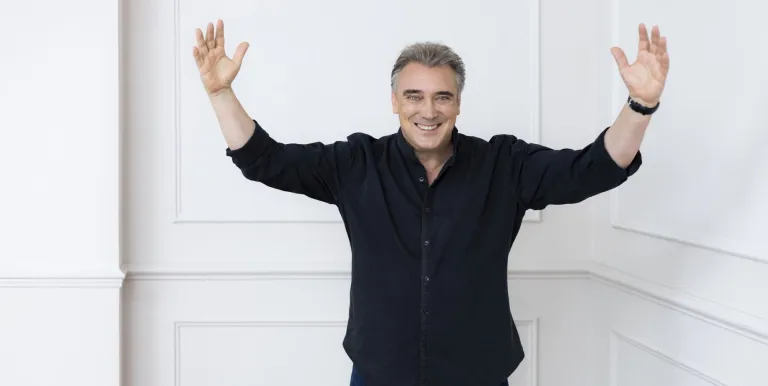Featring: Pieter Wispelwey Ravel: Pavane for a Dead Princess Dvořák: Cello Concerto in B minor, Op. 104 Dvořák: Symphonic Variations, Op. 78 Ravel: La Valse (choreographic poem) Conductor: Iván Fischer 'Pavane' by Maurice Ravel was written in 1899, originally for piano, as a tribute to the memory of an imaginary Spanish princess. This magnificent miniature score is dense with solemnity and pain. Cello Concerto in B minor is the last piece of Dvořák’s American residence. It was originally composed for Hanus Wihan, but the musician’s cooperation with the composer ended in a rather heavy argument. Thus the piece, which belongs to the most outstanding examples of Brahms-like large scale, romantic concertos, was performed by Leo Stern at its debut in London, 1989. The soloist of today’s concert, Pieter Wispelwey from the Netherlands, is an extraordinary artist: not only because of his exceptional musicality, but also because of his versatility. He masters modern instruments with ease, while at the same time he is considered an illustrious player of early music and an excellent interpreter of Bach. He has recorded all pieces for cello by Bach twice. In 1866, Dvořák composed 'Variations on an Original Theme for piano' and it was perhaps the success of this piece that inspired him to compose variations for a symphonic orchestra. The theme for the piece was taken from one of his choir works 'I am a Fiddler', and was adapted it in 28 short variations. Ravel composed 'La Valse' in 1919 at the request of Diaghilev, director of the Balletts Russes, thus the label ’choreographic poem’. Although Diaghilev did not present the piece on account of a heated debate with Ravel, this ‘fantastic and tragic cavalcade’ (as the composer called his ironic parody that portrayed the imperial Vienna and its world of waltz) has become his most frequently played symphonic piece beside Bolero.
Presented by:
-
We wish to inform you that in the event that Müpa Budapest's underground garage and outdoor car park are operating at full capacity, it is advisable to plan for increased waiting times when you arrive. In order to avoid this, we recommend that you depart for our events in time, so that you you can find the ideal parking spot quickly and smoothly and arrive for our performance in comfort. The Müpa Budapest underground garage gates will be operated by an automatic number plate recognition system. Parking is free of charge for visitors with tickets to any of our paid performances on that given day. The detailed parking policy of Müpa Budapest is available here.















